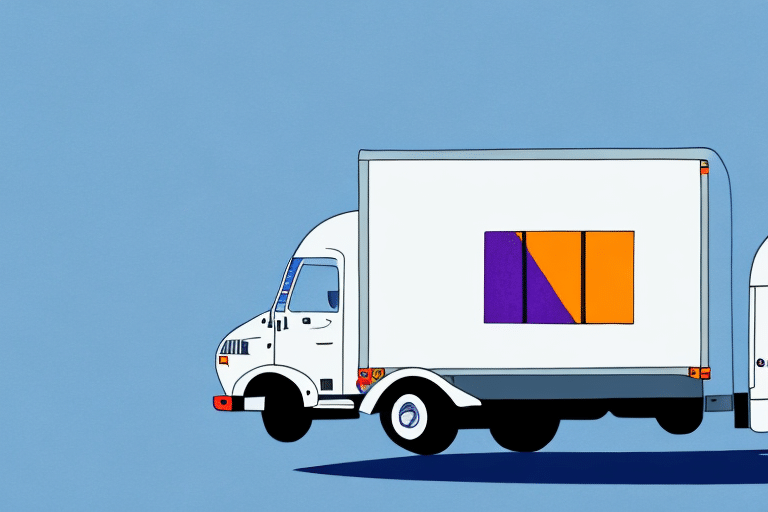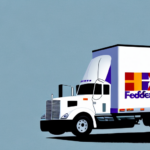Understanding FedEx LTL Rates
When it comes to shipping large or heavy items, companies often turn to Less Than Truckload (LTL) shipping as a cost-effective solution. FedEx is a major player in the LTL industry, offering reliable and affordable shipping options for businesses of all sizes. In this article, we will explore everything you need to know about FedEx LTL rates and how to navigate them to optimize your shipping costs and improve your overall logistics efficiency.
What is LTL Shipping and How Does It Differ from Other Shipping Methods?
LTL shipping is a method of transporting goods that do not require a full truckload. This means that multiple shipments from different customers can be consolidated into one trailer to increase efficiency and reduce costs. LTL shipping is typically less expensive than Full Truckload (FTL) shipping, which involves shipping an entire truckload for one customer. On the other hand, LTL shipping requires more stops and has a longer transit time than FTL shipping.
One of the benefits of LTL shipping is that it allows small businesses to ship their products without having to pay for an entire truckload. This makes it a cost-effective option for businesses that do not have large volumes of goods to ship. Additionally, LTL carriers often offer tracking services, which allow businesses to monitor the progress of their shipments and ensure that they arrive at their destination on time.
However, LTL shipping also has some drawbacks. Because shipments are consolidated with those of other customers, there is a risk of damage or loss of goods during transit. Additionally, LTL carriers may have restrictions on the types of goods that can be shipped, such as hazardous materials or oversized items. It is important for businesses to carefully consider their shipping needs and choose a carrier that can meet their requirements.
The Factors That Determine FedEx LTL Rates
Several factors affect FedEx LTL rates, including the weight and dimensions of the shipment, pick-up and delivery locations, the type of goods being shipped, and the level of service required. The level of service includes factors such as delivery window, expedited shipping options, and special handling requirements. Additionally, accessorial charges such as liftgate services or inside delivery can add additional fees to your shipping cost.
Another factor that can impact FedEx LTL rates is the distance between the pick-up and delivery locations. Longer distances may result in higher rates due to increased fuel and transportation costs. Rates may also vary depending on the time of year and current market conditions.
Furthermore, the type of packaging used for your shipment can affect the rates. FedEx LTL has specific packaging requirements for certain types of goods, such as hazardous materials or fragile items. Failure to comply with these requirements may result in additional fees or even the refusal of the shipment. For detailed packaging guidelines, refer to FedEx Packaging Guidelines.
How to Calculate the Cost of a FedEx LTL Shipment
FedEx provides several tools to help you calculate the cost of your LTL shipment. Their online rate quotes tool allows you to enter the specific details of your shipment to get an accurate estimate of the cost. Alternatively, you can work with a FedEx representative to get a custom quote based on your specific shipping needs.
It's important to note that the cost of your FedEx LTL shipment may vary depending on several factors, such as the weight and dimensions of your shipment, the distance it needs to travel, and any additional services you may require, such as liftgate or inside delivery. Comparing rates and services from multiple carriers is always a good idea to ensure you're getting the best value for your money.
Tips for Reducing Your FedEx LTL Shipping Costs
While LTL shipping is already a cost-effective solution for many businesses, there are several strategies you can use to further reduce your shipping costs:
- Consolidate Shipments: Combine multiple shipments into a single LTL shipment to maximize space and reduce costs.
- Optimize Packaging: Use appropriate packaging to minimize dimensional weight charges and avoid unnecessary fees.
- Negotiate Rates: Leverage your shipping volume and frequency to negotiate better rates with FedEx.
- Utilize Discounts and Promotions: Take advantage of any available FedEx discounts for new customers or high-volume shipping.
Additionally, using FedEx's online tools and resources, such as their shipping calculator and rate quote tool, can help you compare rates and find the most cost-effective shipping options for your business.
Understanding the Different Types of FedEx LTL Service Options Available
FedEx offers several levels of LTL service, each with varying levels of speed and cost. These options include:
- FedEx Freight Priority - Fastest delivery option for time-sensitive shipments.
- FedEx Freight Economy - Cost-effective option for shipments with less urgent delivery needs.
- FedEx Freight Box - A flat-rate, all-inclusive pricing option for shipments weighing up to 1,200 pounds.
- FedEx Freight Direct - A specialized service for delivering heavy or oversized items directly to a customer's home or business.
Each of these LTL service options also comes with additional features and benefits. For example, FedEx Freight Priority offers a money-back guarantee if your shipment is not delivered on time, while FedEx Freight Economy includes a customizable delivery window to fit your specific needs. Additionally, FedEx Freight Box includes free packaging materials and no additional fees for residential delivery, while FedEx Freight Direct provides a dedicated team to handle the entire delivery process from start to finish.
Choosing the Right FedEx LTL Service Option for Your Business Needs
The right FedEx LTL service option for your business will depend on several factors, including your budget, delivery timeline, and shipping volume. Carefully evaluating each option and choosing the one that best fits your specific needs is crucial.
One important factor to consider when choosing a FedEx LTL service option is the level of tracking and visibility you require. Some options may offer more detailed tracking information than others, which can be crucial for businesses that need to closely monitor their shipments.
Another factor to consider is the level of customer support you need. If you anticipate needing assistance with your shipments, it may be worth choosing a service option that offers more robust customer support, such as 24/7 phone or email support.
Common Mistakes to Avoid When Using FedEx LTL Shipping Services
Some common mistakes to avoid when using FedEx LTL shipping services include underestimating the weight or size of your shipment, failing to properly label your items, or not providing accurate information about special handling requirements. These mistakes can result in additional fees or delivery delays, so it's essential to carefully review your shipment details before sending.
Another common mistake to avoid is not properly securing your items for transport. This can lead to damage or loss of your shipment during transit. Make sure to use appropriate packaging materials and secure your items with proper padding and strapping to prevent any movement or shifting during transport.
Benefits of Using FedEx LTL for Your Business Shipments
There are several benefits to using FedEx LTL for your business shipments, including cost savings, comprehensive tracking and visibility, and flexible delivery options. Additionally, FedEx offers a variety of value-added services, such as delivery notifications and secure storage, to further improve your shipping experience.
Another benefit of using FedEx LTL for your business shipments is their commitment to sustainability. FedEx has implemented several initiatives to reduce their environmental impact, such as using more fuel-efficient vehicles and investing in alternative fuel technologies. By choosing FedEx LTL, you can reduce your own carbon footprint while supporting a company that prioritizes sustainability.
Case Studies: Real-Life Examples of How Businesses Have Benefited from Using FedEx LTL Shipping Services
Many businesses have improved their logistics operations and saved money by utilizing FedEx LTL shipping. For example, a furniture manufacturer was able to consolidate their shipments and reduce their overall shipping costs by 20 percent through the use of FedEx Freight services.
A clothing retailer struggling to keep up with demand during peak seasons partnered with FedEx LTL shipping, streamlining their supply chain and ensuring timely deliveries to customers. This resulted in increased customer satisfaction and repeat business.
Additionally, a medical equipment supplier improved their shipping efficiency and reduced the risk of damage to delicate equipment by using FedEx LTL shipping. The specialized handling and tracking capabilities of FedEx Freight services ensured that products arrived at their destination in perfect condition, building trust with customers and enhancing their industry reputation.
Frequently Asked Questions About FedEx LTL Rates and Services
If you have additional questions about FedEx LTL rates and services, several resources are available to help. FedEx provides a comprehensive FAQ section on their website, as well as customer service representatives who can assist with any specific concerns.
Comparing FedEx LTL Rates with Other Carriers: Which Is the Best Option for Your Business?
While FedEx is widely recognized as a leader in the LTL shipping industry, it's always a good idea to compare rates with other carriers to ensure that you're getting the best deal for your business. Some other popular LTL carriers include UPS Freight, YRC Freight, and XPO Logistics. When comparing rates, evaluate factors such as transit time, delivery options, and special handling fees to determine which carrier best meets your business needs.
Understanding Accessorial Charges and How They Impact Your Overall FedEx LTL Rate
Accessorial charges are fees associated with additional services required to complete a shipment, such as liftgate usage, inside delivery, or storage fees. These charges can add up quickly and significantly impact the overall cost of your FedEx LTL shipment. It's important to discuss any required accessorial services ahead of time and factor them into your shipping budget.
How to Negotiate Better Rates with FedEx for Your Regular or High-Volume Shipments
If you're shipping regularly or in high volumes, it's possible to negotiate better rates with FedEx based on your shipping history and the volume of business you provide. Provide accurate and detailed information about your shipping needs and volumes to your FedEx representative to ensure that you are getting the best possible rates for your business.
The Future of LTL Shipping and What It Means for Businesses Using FedEx Services
The LTL shipping industry is constantly evolving, with new technologies and innovations designed to improve efficiency and reduce costs. As a leader in the industry, FedEx is well-positioned to adapt and grow with these changes, providing top-notch service and competitive rates for businesses of all sizes.
Understanding all the factors that affect FedEx LTL rates and the various service options available can be overwhelming, but with careful research and planning, businesses can optimize their shipping costs and improve their overall logistics operations. By utilizing the tools and resources provided by FedEx, companies can take advantage of this cost-effective and reliable shipping solution to boost their bottom line and better serve their customers.






















